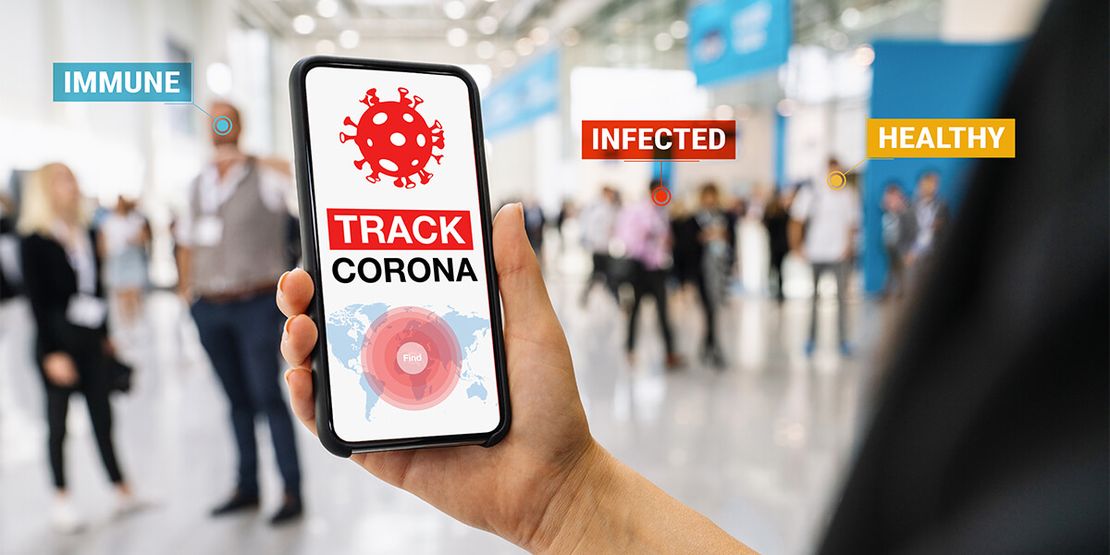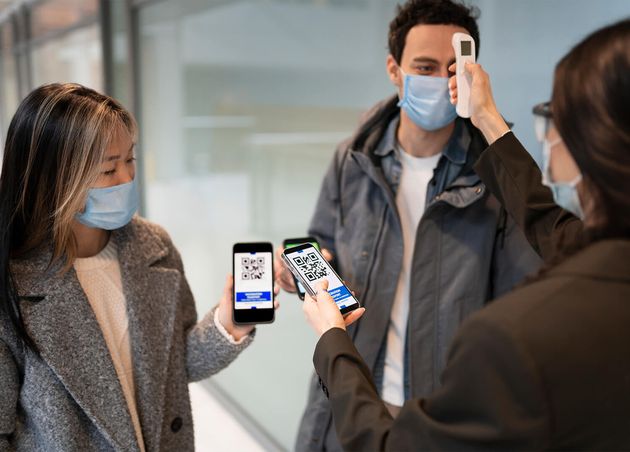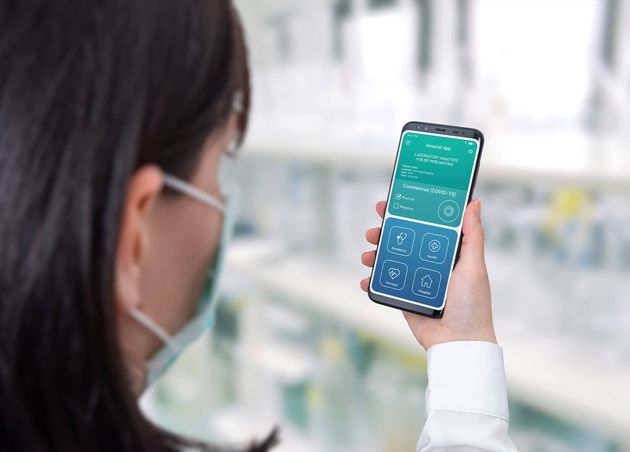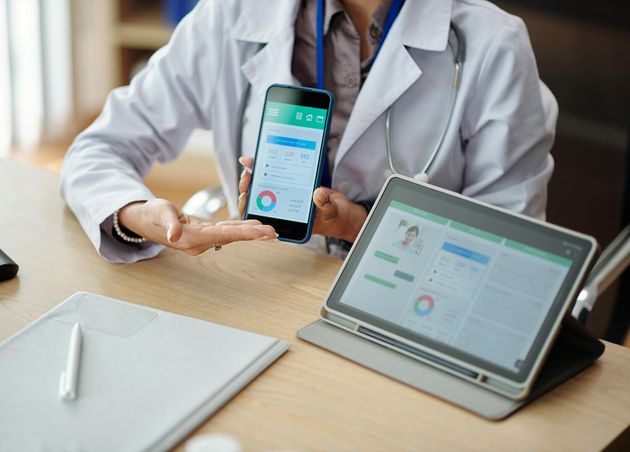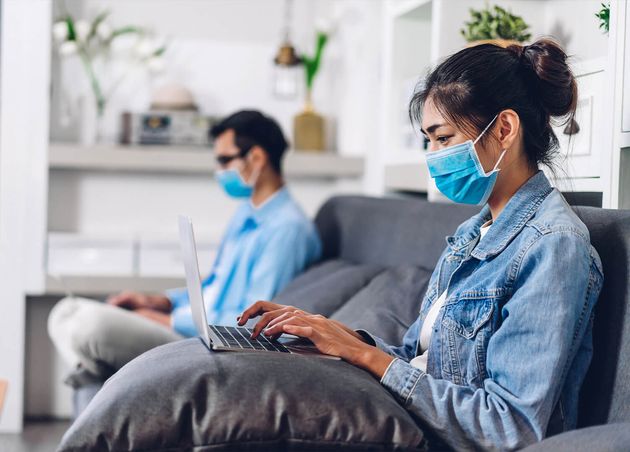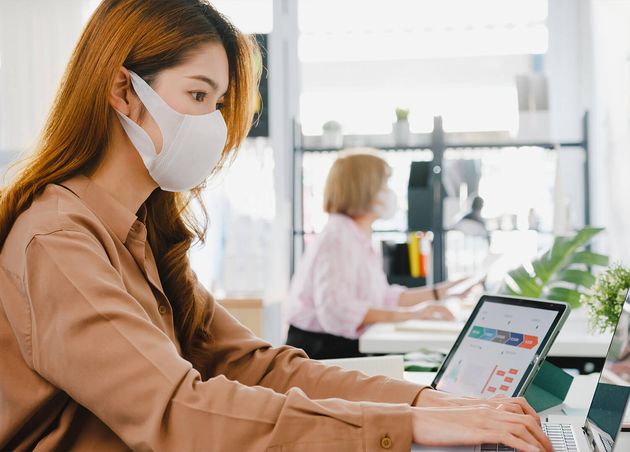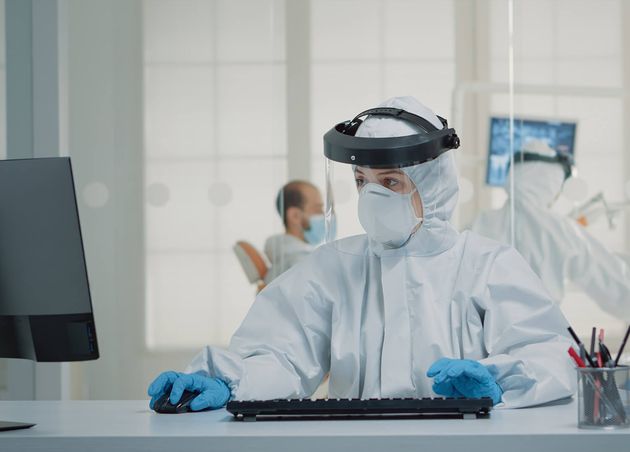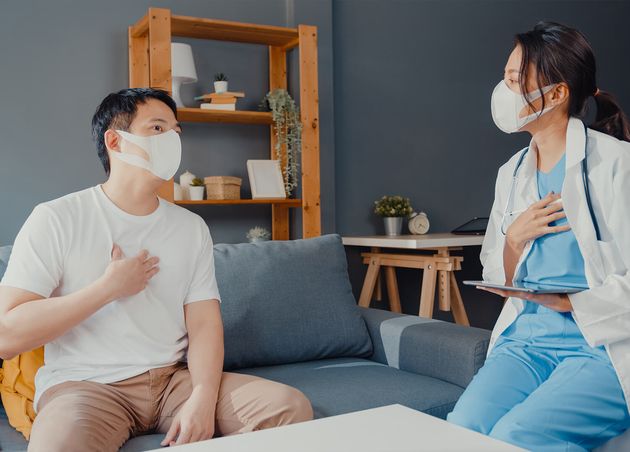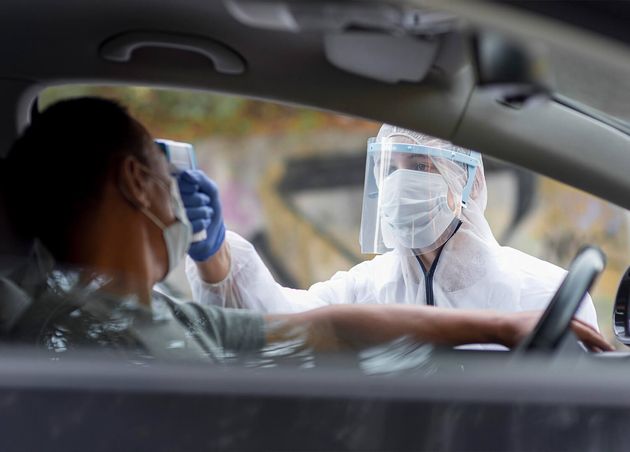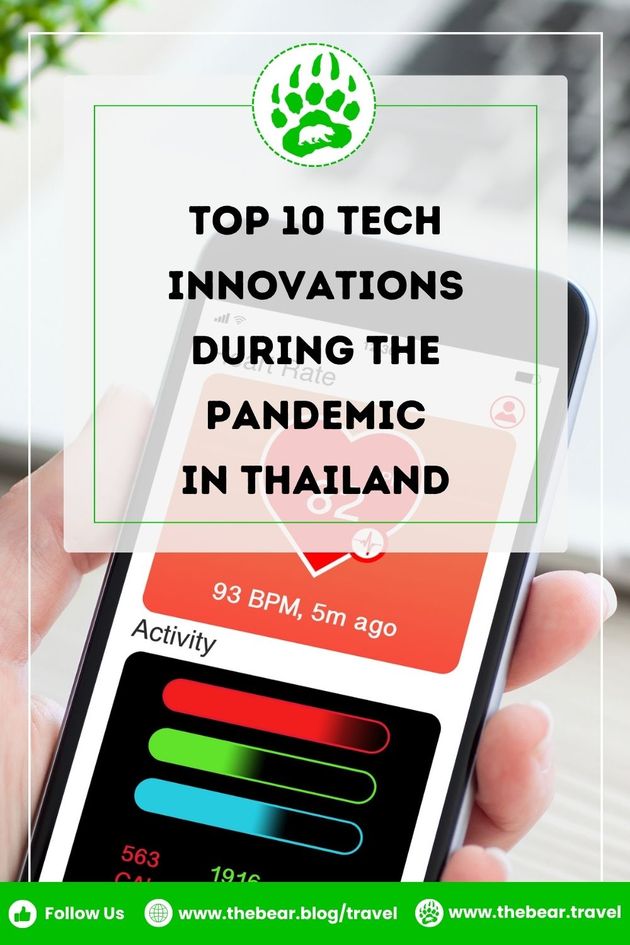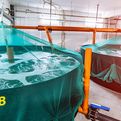Top 10 Tech Innovations During the Pandemic in Thailand
Have you ever wondered about the lessons that the COVID-19 pandemic has taught Thai people and its positive impact on Thailand? Let's say it in just one word: 'Innovations.' Despite creating massive destruction, the pandemic has become Thailand's primary accelerator for new technical innovations.
Therefore, today, I thought to show you the positive impact of this pandemic on Thailand and its technological innovations. Recently, new technology innovations continue to be developed to fight the spread of the coronavirus and regulate Thai people's daily lives.
The absolute truth is that innovative people came forward quickly with this pandemic. Therefore, by the end of this pandemic, Thailand will be technically far ahead of what it was before.
People who think differently and positively change the world during every problematic situation. So, let's see the Thai innovations while fighting against this deadly virus. Here are the top 10 pandemic-driven tech innovations in Thailand.
#10 Self-screening Application
In January 2020, the first outbreak of COVID-19 in Thailand was noted. It was just the beginning, and the following circumstances with the COVID-19 outbreak motivated Chiang Mai University's public health faculty to develop a self-screening for COVID-19 using a mobile application in Thai, English, and Chinese.
The Self-Screening Application served as a preliminary screening for the common public. Who needed to discover more about the infection and those who might suffer uncomfortably or doubt they had contacted the coronavirus? The main goal of this application was to encourage the community to prepare a self-assessment, inputting any signs and symptoms they had. For example, fever, dry cough, tiredness, sore throat, difficulty breathing, or shortness of breath.
Then, the application tabulated the data, indicating their overall condition. It was presented as one of three levels of evaluation and advice,
- Red: Suspected COVID-19 - "Medical evaluation is immediately needed."
- Yellow: Probable Exposure - "Please see a doctor if you have any symptoms."
- Green: Healthy - "No indication for novel COVID-19 infection."
Furthermore, the application's statement page submitted several educational materials in Thai, English, and Chinese about COVID-19 that directed the participants to websites to improve their health literacy and learn additional about how to stave off themselves from getting the disease. Reports indicating suspected COVID-19 infection also listed the telephone number of the Department of Disease Control under the Ministry of Public Health in Thailand to call in to ask for further assistance.
#9 Self-health Check (SHC) Application
When China reported the COVID-19 outbreak, many countries, such as Thailand, commenced travel restrictions from China, within the country, and other high-risk countries. However, airline travel proceeded still on a more limited ranking globally. The Thai Government initiated an application to address this challenge, targeting Thai and foreign visitors who traveled to Thailand from many listed countries suffering COVID-19 outbreaks.
People who entered Thailand were asked to cooperate at the airports to download this application on their mobile phones. They were asked to be socially responsible by reporting their health condition related to symptoms of COVID-19 daily for 14 consecutive days. The application was obtained for all travelers at Chiang Mai International Airport. Also, airlines cooperated by asking travelers arriving in Chiang Mai to download this application. During the 14-day follow-up after travel, if a person developed any signs and reported them through the mobile application, they would be informed by a public health officer how to proceed through a short message system directly sent to their mobile phone.
The application also emailed agencies, like the Department of Disease Control or provincial public health offices, about suspected outbreaks. The system provided real-time notification about how many people had arrived in the country, how many had any symptoms related to COVID-19, how many were at risk for the disease, and their names, addresses, and contact phone numbers in Thailand. This information enabled local public health officers to contact suspected cases instantaneously.
The travelers could also send issues with the application text box to the health authorities, acknowledging the tourists later. It helped strengthen reasonable contact efficiency between the traveler and Thailand's public health officers. After fulfillment of the 14-day follow-up, the system shuts down automatically. This application helped local health authorities follow up with many travelers and be awakened instantly if any travelers reported symptoms daily.
Health officials could then reach the symptomatic travelers and ask them to come to the hospital for testing and be hospitalized while staying for the testing results. This application was also offered to the general public during the necessary lockdown in Thailand, intensifying the need for social responsibility.
#8 COVID-19 Hospital Information System
When Thailand announced a national lockdown in the early week of April 2020 and closed all international airports, restricting global travelers, there was already a rising number of COVID-19 victims and an enormous number of patients under-investigated COVID-19.
The challenges of conducting patient maintenance and monitoring questionable outbreaks made it critical to know the number of daily cases, diagnosis results, and transfers of COVID-19 patients to hospitals for medication. Because of all those reasons, Chiang Mai provincial health authorities desired an application to manage all this data throughout the healthcare network. A real-time evidence system on pending cases and COVID-19 patients could encourage the assignment of resources among the network hospitals, informing individuals in each public health agency, and it will help manage the patients.
Provincial Health Authority launched the Chiang Mai COVID-19 Hospital Information System in March 2020. The data on suspected cases and confirmed COVID-19 patients was inputted by 51 public and private hospital staff into one program. The data contained the name, address, registration with codes for laboratory outcomes, and transfer information of suspected cases. If the laboratory results confirmed a positive result for COVID-19, patients were referred to one of the 13 network hospitals assigned for COVID-19 treatment in Chiang Mai. The system's motive was that all the hospitals could manage data within one platform, including the harshness of patients, laboratory results, drug prescriptions, blood tests, hospital bed management, or referral to another hospital.
The records of each patient were tested via this application platform. Officials of each hospital or provincial health authority could recognize the information from a dashboard about the number of COVID-19 patients, the number of suspected cases waiting for laboratory results, their names, their symptoms, and trends in COVID-19 circumstances. Administrators of various statuses of responsibility were encouraged by different rights to protect the data and privacy of the patients.
#7 Websites
Thai innovators have introduced a website that provides real-time updates on COVID-19 infection levels in Thailand and high-risk areas. A collaborative effort by state agencies has developed a novel application named DDC-Care. This app serves a dual purpose: it enables individuals to conduct self-assessments for potential COVID-19 infection and tracks travelers from high-risk countries who must undergo a 14-day self-quarantine period.
Moreover, individuals near suspected COVID-19 cases can utilize the app to monitor their health status for 14 days. The National Science and Technology Development Agency and the National Electronics and Computer Technology Center jointly developed the app. This technology not only aids in the early identification of potential infections but also assists in ensuring timely reporting and self-care management among those who may have been exposed to the virus.
#6 Telemedicine
The Yothi Medical Innovation District (YMID), in collaboration with the NIA and the Technology and Innovation-based Enterprise Development Fund, has established a platform that enables technology start-ups to provide an alternative channel for patients to interact with doctors without the need to visit a hospital. This initiative somehow aims to reduce the risk of COVID-19 transmission by allowing patients to consult with healthcare professionals remotely.
Through YMID, a collection of 22 health tech start-ups has been assembled. These start-ups offer various services, including patient screening, basic medical information provision, teleconsultations, comprehensive diagnoses, patient care systems, and the organization of medical logistics. For instance, individuals with non-communicable disorders can engage in teleconsultations with healthcare experts proficient in telemedicine. Medical practitioners can conduct remote diagnoses and employ external laboratory tests to assess patients' health conditions.
Moreover, artificial intelligence (AI) can be harnessed for diagnostic purposes, and robots can be deployed in negative pressure rooms to care for patients, thereby minimizing the risk of infection among medical staff. Additionally, over 30 start-ups are actively working on technologies that support social distancing measures, encompassing aspects like video conferencing, data collection, and online learning tools.
#5 E-office Application
CBIC, commonly referred to as the Central Board of Indirect Taxes and Customs, introduced an e-office application across more than 500 CGST (Central Goods and Services Tax) and customs departments throughout Thailand. This initiative aims to enhance governance by automating internal government file management and decision-making procedures.
The key component of the e-office application, the e-file module, facilitates various online file-related tasks, including receiving and categorizing documents (dak), managing files, drafting letters, obtaining approvals/signatures, and dispatching finalized letters. With an estimated 50,000 officers and staff members projected to use the application, CBIC becomes one of the largest government entities to implement internal office automation. This effort complements other IT-driven reforms that aim to enhance the ease of conducting business for the trade and industry sectors.
By implementing the e-office solution, CBIC seeks to harness technology for a 'faceless, contactless, and paperless' approach to indirect tax administration. The application's utilization by CGST and customs officers at all levels is expected to foster transparency, accountability, and positive environmental impact by significantly reducing paper usage and printing. Particularly pertinent during pandemics like COVID-19, the e-office helps minimize physical contact with files, thereby mitigating potential virus transmission.
Furthermore, the e-office ensures heightened security, as files and documents cannot be altered, destroyed, or backdated. Additionally, a built-in monitoring mechanism helps identify bottlenecks in file processing, leading to more rapid and efficient decision-making processes.
#4 Artificial Intelligence
The Ministry of Digital Economy and Society in Thailand and one of the biggest technology giants in China previously announced proposals to furnish artificial intelligence (AI) solutions and 5G technology to Thai public hospitals in the fight against COVID-19. AI technology can help doctors analyze computed tomography methodology developments of infection cases with high accuracy.
The adoption of such innovative solutions holds the potential to significantly alleviate the workload of Thai healthcare professionals who are attending to COVID-19 patients. The integration of the 5G network can notably aid hospitals dedicated to COVID-19 treatment in managing network congestion while ensuring the delivery of high-quality medical services.
This AI-assisted solution, developed in collaboration with HY Medical, a Chinese company specializing in the AI medical sector and utilizing medical imaging powered by artificial intelligence, is underpinned by advanced cloud technology. It can be crucial in enhancing patient care and streamlining medical processes.
#3 Health at Home
The COVID-19 pandemic has sped up technology adoption across Asia, but there is still a significant digital divide. For many people, seeing many older people in a hospital is something predicted. But for Thailand, it was a challenge that authorities wanted to solve. This effort was Health at Home, a Thai startup integrating geriatric medical practice and digital technology to find caretakers for old patients.
Most elderly patients who had been admitted wanted to go home. But they couldn't, even when their medical condition could not guarantee a hospital stay. Finding good, qualified caregivers to look after them at Home was difficult. All these things can be done on a mobile phone, a change from the conventional strategy of sourcing caregivers. For many families, this has involved seeking suggestions from friends, which can take days to set up a contact, and there is no guarantee of getting a qualified person.
Since Health at Home was launched, earnings and user numbers have risen daily. With technology, the future of healthcare delivery will likely happen outside hospitals. According to the innovator, "healthcare is not only about technology. It's also about users' acceptance and requirements. It is about timing." Health at Home is part of a large pool of Asian startups that have emerged to tackle everyday problems and grasp opportunities from the region's growing technology market and high technology adoption by consumers.
#2 Broad Applications of Blockchain
In keeping with Thailand's priority on using digital technologies to prompt national economic advancement and development during the pandemic, the Thai government examined the practicability of using blockchain to create value‑adding services for mainstream industries. Blockchain technology has increased in several traditional industries outside Thailand's digital currency space.
Thailand introduced blockchain for its warehousing, sorting, shipping, and delivery processes to enhance operational efficiency. In a further development, Thailand has unveiled its exploration of blockchain technology across various sectors, including copyright, agriculture, and trade finance, to enhance its credibility in terms of intellectual property protection. Simultaneously, the country's finance ministry revealed its intentions to leverage blockchain to monitor tax payments and identify tax fraud instances. These initiatives underline Thailand's commitment to harnessing blockchain's potential for increased transparency and efficiency in diverse areas of governance and commerce.
Thailand has emerged as one of Southeast Asia's most engaging digital currency and blockchain countries. The COVID-19 blockchain will be used in food safety, royalties, real estate, intellectual property, and asset management. Many market players have brought up the chances of blockchain technology to regulate various difficulties across different industries, from healthcare and manufacturing to retailing and finance.
Despite the harsh impact of the pandemic, certain Thai companies are foreseeing blockchain technology as a pivotal component of their future operations. This innovative technology is being viewed as a significant priority in their strategic planning, recognizing its potential to enhance various aspects of their business endeavors.
#1 Drive-Thru and Semiconductor Technology
Amid the pandemic, several municipalities across Thailand have introduced innovative "drive-thru" COVID-19 testing stations, where individuals remain in their vehicles while medical personnel, clad in protective gear, collect samples. This efficient process, completed within 15 minutes and costing less than $20, eliminates direct contact and minimizes the need for individuals to exit their vehicles. Samples can be easily obtained through an open car window.
A pioneering startup in Thailand has also harnessed semiconductor technology to enhance real-time PCR testing, a technique often called "molecular photocopying." PCR, commonly known as the polymerase chain reaction, is a method for rapidly amplifying small DNA segments for virus detection, such as COVID-19. However, the process can encounter challenges when dealing with a low viral load in a sample.
In response, another company has developed a digital real-time PCR analysis device that delivers swift and accurate results, regardless of the viral load in the sample. This device reportedly provides results in less than an hour, costing approximately one-tenth of other PCR kits. The combined use of drive-thru testing stations and semiconductor technology stands out as a leading technological innovation during the pandemic in Thailand.
While COVID-19 has been creating considerable havoc on societies and economies, it has also given us a look into the future. Especially for Thailand, it's one where digital technology has become central to every interaction, whether it is social or commercial.
So, it was a big step in opening new doors to the world during the pandemic and after the end of all the bad situations. I want to say that stay safe while moving forward with new technologies and innovations, don't give up, and take this as an opportunity to change your life.
Rowan (Guinness Bear)
Hi! I'm Rowan Travers (Guinness Bear), your go-to travel companion, always on the move to uncover the most breathtaking destinations. Join me as I share my recommendations for must-visit spots and memorable experiences. Dive into my immersive "Top 10" series, and let's explore the world together!
The Bear Travel | Experience like a Local
A fast-growing Thailand Travel Blog written by Expats and Thais since 2017. We will share our experiences and ideas from an insider point of view for you to create your own unique Thailand experience.
For the latest news and events about The Bear Travel, follow us on Facebook, Instagram, Twitter, Pinterest, or YouTube.
For any issues, concerns, or queries, don’t hesitate to CONTACT us.
Recommended for you
Future of Shrimp Farming: Embracing Indoor Cultivation
Riley Sinclair (Digital Aqua Bear)
Travel to Thailand: The Ultimate Guide to Planning Your First Trip
Dr. Theodore (Professor Bear)
Baan Boy Thai Restaurant: High-Quality Food Available in Bangkok
Tle (Hungry Bear)
Life Beyond the City: Embracing Suburban Living in Thailand
Lifestyle Bear
Shrimp Diseases in Thailand: A Complete Guide for Farmers
Riley Sinclair (Digital Aqua Bear)


